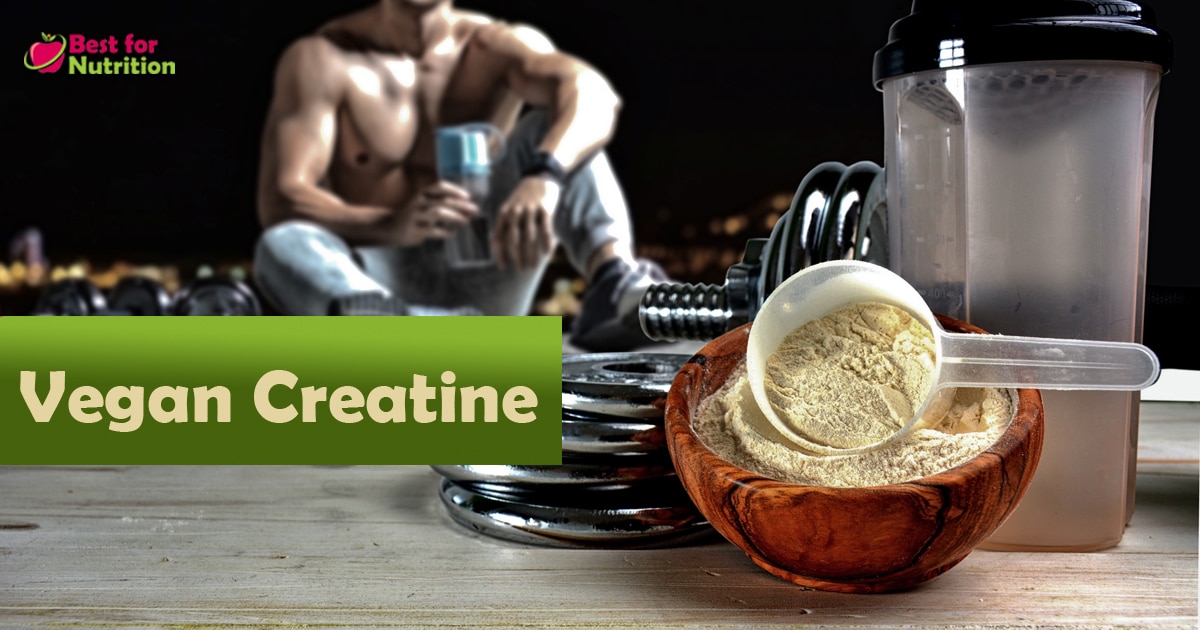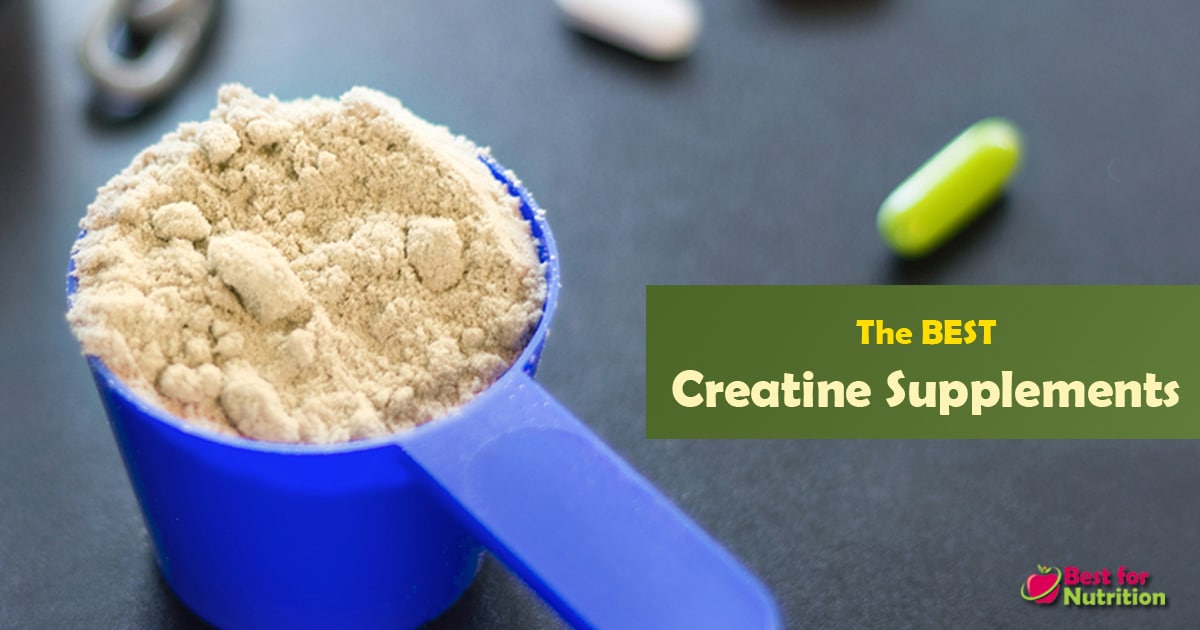Having gained popularity as a supplement after the Barcelona Olympic Games in 1992, creatine is now a popular supplement among bodybuilders and fitness enthusiasts.
Its reputation to enhance muscle mass and aid fast recovery have made it a much sought-after supplement, even among teenagers.
Though many advantages of using creatine are backed by scientific research, experts still debate about the use of creatine supplements by teens.
Common questions asked by teens as well as parents are ‘ How old should you be to use creatine?’, Is creatine safe for high school athletes?’, and ‘What are the creatine effects on teenagers?’.
This article aims to answer all of the above as well as explain what is creatine, the prevalence of creatine use by teens, the benefits of creatine, dosage, and the risks of using creatine in teens.
- What is Creatine and How it Works
- The Prevalence of Creatine Use in Teenagers
- The Benefits of Creatine for Teens
- The Recommended Dosage of Creatine for Teens
- Risks and Side Effects of Teens Using Creatine Supplements
- FAQs

What is Creatine and How it Works
Creatine is an organic substance that is normally found in muscles and the brain in the human body. Synthesized from 3 different amino acids, the body naturally makes creatine with the help of kidneys, liver, and pancreas.
Most people obtain creatine through milk, meat, and seafood. The body makes enough creatine for day-to-day activities, but athletes or bodybuilders may require more creatine and hence resort to the use of supplements.
Teens who are training for sports can rapidly use creatine stored in the muscles as energy during intense workouts to maintain strength and stamina. The most commonly used type of creatine is creatine monohydrate.
Creatine monohydrate, when used in conjunction with complex carbohydrates, can help raise blood glucose levels for energy. It helps replenish the levels of Adenosine Triphosphate (ATP), an energy-transporting molecule which dips during physical workouts. (1)
By increasing phosphocreatine reserves in the body to maintain ATP levels, creatine helps with increased stamina and energy during workouts resulting in better performance.
Summary: Creatine, made by the body and obtained from foods, is used for daily activities and during intense physical workouts. Creatine replenishes depleted ATP levels to increase stamina and energy during physical exercise to enhance performance.
The Prevalence of Creatine Use in Teenagers
Dietary supplements are popular with adolescents and college teens for various reasons including a good body build, enhancing immunity, and increased performance. (2), (3)
Creatine is a nutritional supplement available in the form of powders, pills, and liquids. The history of use by athletes, recommendations by sports organizations, and the prescription-free availability has made this a popular supplement among teens.
One study showed recommendations by friends and its capacity to enhance post-recovery has led to its frequent use by high school teenagers. (4)
Another study showed high school athletes as young as 14 years used creatine and frequency of daily use was reported to be 35%. (5)
So, now the big question is:
Can Teens Take Creatine?
Creatine has long been recommended as safe and effective for athletes by the International Society for Sports Nutrition. But the committee also lays down rules for use of creatine by younger athletes under the age of 18. (6)
Pediatricians oppose the use of such supplements as there are no studies to confirm the safety or efficacy of creatine in normal teen athletes. (7)
Despite controversies, research still shows that creatine use in adolescent athletes appears to be well-tolerated with no reported adverse events and has been used to treat certain medical conditions with efficacy in children. (8)
Summary: Creatine as a dietary supplement is recommended to be safe by sports organizations. It is also used widely by high school teens for enhancing performance. While controversies prevail about its use, studies still show creatine use to be tolerant in teens.
The Benefits of Creatine for Teens
The use of creatine has long been proven safe and beneficial for human use. It is one of the known nutritional supplements that have been backed by years of scientific research and recommended for use by various organizations including the International Society for Sports Nutrition. (9)
Here we explore certain proven benefits of creatine supplementation for teenagers.
Creatine can Increase Muscle Mass in Teenagers
One of the primary reasons why teens take creatine is to increase muscle mass and gain a good physique, and creatine turns out to be the ideal supplement.
Creatine supplements work by drawing water into the muscles. Initially, this leads to water retention and body weight. With continued workouts, creatine concentrations in muscle increases eventually leading to increased muscle mass. (10)
One study indicated that adolescent athletes’ use of dietary supplements on a daily basis was considered important to build muscles. Coaches had recommended the use and parents provided the supplements. (11)
Summary: Creatine supplementation increases water retention. Continued exercise leads to increased muscle creatine concentration and consequently lean muscle mass which is much sought-after by teenagers.
Creatine Intake May Enhance Strength and Performance in Teens
Teen athletes are often known to use creatine for several reasons including strength, endurance, and overall performance.
Studies have revealed that creatine can increase strength, peak-power during exercise, and enhance performance apart from an increase in fat-free mass. (12)
One study revealed that a short-term low dose creatine intake helped with considerable muscle power output in below-18 soccer players. (13)
Teens consider creatine as it is backed by sports organizations or used by peers. Plus the demonstrated efficacy in increasing muscle power and longer durations of endurance resulting in better performance makes it a great choice.
Research on high school athletes revealed that increased strength was considered the best benefit of creatine supplementation and hence used by 9th graders to 12th graders in different sports. (14)
Summary: Creatine as an ergogenic supplement has long been used in sports. Teens, as young as 9th graders and onwards, use creatine to help them with sufficient muscle power, strength, and stamina for enhanced performance.
Creatine Promotes Quick Post-Workout Recovery in Teens
Teens are often involved in rigorous exercises and training during sports. This also means that muscle stress, injuries, and soreness are more frequent among teen athletes.
Another frequent use of creatine by teenagers is to speed-up recovery after such workouts. Creatine has been repeatedly proven beneficial to aid from injuries and muscle soreness after workouts.
Studies have shown that creatine enhances muscle force recovery after workouts that result in muscle damage. (15)
A specific study of creatine supplementation in adolescents suggested that the ingestion of creatine supported recovery from tendon overuse injury in swimmers. (16)
Summary: High-intensity sports activities and exercises can result in minute muscle damage and soreness in teen athletes. Evidence suggests teens taking creatine supplementation may recover faster from tendon overuse and muscle injuries following intensive workouts.
Creatine May Aid in Treating Specific Pediatric Disorders
Creatine, before its use in sports, was discovered to have potential therapeutic properties to treat certain disorders such as gyrate atrophy, muscular dystrophies, Traumatic Brain Injury (TBI), and mitochondria-related diseases in children. (17)
One study indicated that creatine supplementation in ambulatory boys suffering from Duchenne muscular dystrophy was well tolerated and it improved the muscle PCr/Pi ratio to preserve muscle strength in the short term. (18)
Another study showed that creatine supplementation in children aged between 1 to 18 years, helped improve several parameters including cognitive functioning, behavior, and communication in Traumatic Brain Injury (TBI). (19)
Summary: Creatine supplementation in children and teens may prove beneficial in treating certain pediatric conditions and result in symptomatic improvements.
The Recommended Dosage of Creatine for Teens
Like all supplements, creatine too should be taken in age-appropriate doses to experience complete benefits and to prevent overdose and subsequent side effects.
Creatine dosage is dependant on the condition for which it is being used and varies between different ages, sex, and medical conditions. The best creatine for teenagers and adults is available in the form of powdered supplements.
Studies show that creatine has been administered ranging from 0.3–0.8 g/kg/day, for an individual weighing 45–77 kg to patients ranging from 25.5 months to 11 years for a treatment period of 11–192 months for treating medical conditions. (20)
Further, research suggests that short supplementation periods ranging between 3-5 days at 0.3-0.8 g/kg/day is sufficient to get ergogenic benefits with a visible improvement in exercise capacity, anaerobic capacity, and strength.
The efficacy of creatine supplementation in adolescents has been positive and backed through various studies. Tolerability to creatine supplements was good and there have been no reported adverse effects. (21)
Summary: Creatine has been used to treat a host of medical conditions in different populations and ages with varying treatment periods. 3-5 days of supplementation with 0.3-0.8 g/kg/day is enough to get desired benefits without any adverse effects.
Risks and Side Effects of Teens Using Creatine Supplements
Creatine is considered to be safe as it is not a steroid but synthesized through other amino acids. Numerous studies back the safety and efficacy of creatine when taken in recommended doses.
Studies indicate that long-term creatine supplementation up to 21 months in college-going athletes did not produce any noticeable adverse effects. (22)
One of the reported side effects of creatine is weight gain. The reason for this is that intake of creatine draws water into the muscles and that reflects as an increase in weight. This temporary effect wears off with continuous exercise.
Other possible side effects that may occur with the use of creatine in teens are Gastrointestinal (GI) distress, dehydration, muscle cramps, or seizures, but there are not many studies to corroborate this. (23)
Despite the low risk of side effects of creatine supplementation, teens should seek the advice of their coaches, parents and check with a doctor for suitability and dosage to prevent any adverse effects that may occur from creatine use.
Summary: Creatine is generally considered safe and even long-term supplementation has not proved to have adverse effects. Weight gain, a common side-effect is only temporary and not harmful.
Frequently Asked Question (FAQs)
How Old Should one be to Buy Creatine?
Currently, there are no laws in the United States that ban minors from purchasing or using creatine. But teen athletes who want to use creatine should do so only under the guidance of a practitioner or nutritionist for safety and prevent any adverse effects.
Is Creatine Safe for a 16 Year Old?
Creatine supplementation has been used to treat certain medical conditions in children and adolescents for decades. But creatine supplements are not recommended for use in teens without the proper guidance of a doctor or a nutritionist. Minors who want to use creatine for sport or medical-related benefits should be made to understand the use and effects of creatine and the limitations in dosages before taking it.
Is Creatine Safe for Teens and Brain Development?
Creatine is naturally stored in muscles and present in the brain and is considered vital for the normal functioning of the brain. It has long been used to treat Traumatic Brain Injuries in children and adolescents even before sports.
Creatine supplementation in teens has not been indicative of any dangerous side effects. Studies suggest that creatine supplementation can improve creatine kinase and phosphocreatine levels in the brain. (24)
Other studies on creatine and cognitive functions >12 years indicate that creatine played a role in improving memory and intelligence tasks. There were no adverse effects especially in young individuals that were reported. (25)
The Final Note
Creatine, a beneficial amino acid, produced by the body and via our daily diet is crucial for muscle growth, energy, and stamina. Athletes and bodybuilders may require more creatine to replace depleted ATP levels during workouts.
Supplementation of creatine in teens is extremely popular. Recommendation by friends spur the regular use of creatine in as young as a 9th grader.
The various benefits of creatine for teens include a boost in muscle mass, reduced pain, increased energy, strength, and faster recovery post-workout.
Creatine supplementation has proven to be therapeutic in the treatment of certain medical conditions including muscular atrophy and traumatic brain injury in children and adolescents.
Though studies establish the benefits of creatine supplementation, studies about efficacy in teens are few. On the other hand, there is minimal evidence to show that creatine supplementation in teens can be detrimental to their health.
Side-effects of creatine are minimal, rare, or temporary. Intake of creatine supplements in clinically approved doses by a practitioner and correct guidance by coaches or parents can make creatine safe for teenage athletes and benefit their overall physical and mental well-being.





